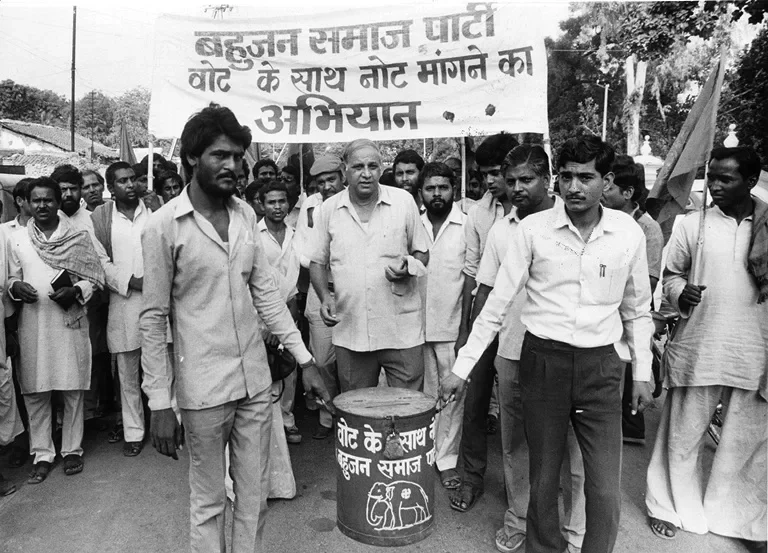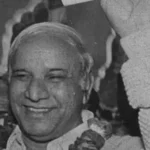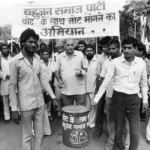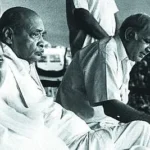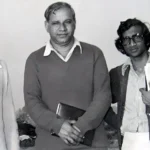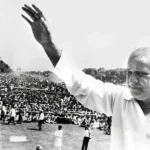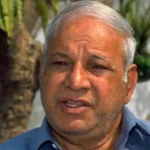The Significance of Kanshiram Political Career and Kanshiram Jayanti
Kanshiram Jayanti is an annual celebration that honors the life and legacy of Kanshiram, a visionary leader whose political career reshaped the aspirations and power of marginalized communities in India. Known for transforming the Bahujan movement from a social awakening to a potent political force, Kanshiram’s journey from the formation of BAMCEF to founding the Bahujan Samaj Party (BSP) highlights his relentless commitment to social justice and empowering the oppressed. This day is a tribute to his revolutionary ideas and enduring impact on India’s socio-political fabric.
- The Significance of Kanshiram Political Career and Kanshiram Jayanti
- Early Life: Foundations of a Revolutionary Leader
- Political Journey: From BAMCEF to BSP
- Social Philosophy of Kanshiram: Self-Respect and Political Empowerment
- Key Achievements and Notable Quotes
- Enduring Legacy: How Kanshiram Political Career Inspires Modern Movements
Early Life: Foundations of a Revolutionary Leader
Born on March 15, 1934, Kanshiram hailed from a Dalit Chamar family in Punjab, where discrimination and social inequality were stark realities. Early experiences of caste-based exclusion inspired him to dedicate his life to fighting oppression. His educational and professional journey led him to work as a scientific assistant in the Department of Defence Production in Pune, where he noted the need for political organization and empowerment among marginalized government employees. This recognition laid the foundation for his later activism.
Political Journey: From BAMCEF to BSP
Kanshiram’s political career gained momentum with the establishment of BAMCEF (Backward and Minority Communities Employees Federation) in 1978. This organization focused on uniting educated Dalit and backward class government employees as a “think tank” and “talent bank” for social upliftment. BAMCEF’s mission extended beyond employee welfare, aiming for political awakening and social solidarity among the Bahujan communities. Kanshiram used BAMCEF as a platform to mobilize political consciousness, which culminated in the founding of the Dalit Shoshit Samaj Sangharsh Samiti in 1981 as a political wing.
In 1984, Kanshiram took a decisive step by launching the Bahujan Samaj Party (BSP) on Ambedkar Jayanti, envisioning a party that would politically represent the Bahujan majority—Dalits, OBCs, Scheduled Tribes, and minorities. He conceptualized the Bahujan movement not only as a vote bank but as a social revolution challenging entrenched caste hierarchies. The BSP rapidly grew under his leadership, contesting in multiple states and raising the political stakes for caste-based social justice.
Social Philosophy of Kanshiram: Self-Respect and Political Empowerment
Kanshiram’s political philosophy was deeply rooted in the ideas of self-respect and unity. He stressed the need for the oppressed communities to take ownership of their own empowerment through political participation. His concept of the “self-respect movement” encouraged the marginalized to awaken their hidden power, reject caste inferiority, and assert their rights. He believed that without political power, social justice would remain elusive, and only whole social transformation could dismantle caste oppression. His famous stance was that until oppressed communities gain political strength, economic and social progress would be incomplete.
Key Achievements and Notable Quotes
- Founded BAMCEF (1978), providing intellectual and organizational strength to the Bahujan cause.
- Established the Dalit Shoshit Samaj Sangharsh Samiti (1981) and the Bahujan Samaj Party (1984), initiating a political platform for marginalized groups.
- Mobilized millions of Dalits and other backward classes into a formidable political force.
- Contested influential elections and laid groundwork for the rise of Mayawati, the first Dalit woman chief minister of India.
- Notable quote: “Till the time we won’t be successful in politics and not able to have power in our hands, the social and economic transformation is not possible. Political power is the key to success.”
- Another striking quote: “We don’t want social justice, we want social transformation”.
Cultural and Political Impact of Kanshiram Jayanti Today
Kanshiram Jayanti serves as a significant cultural event that reinforces the values of social equality and political empowerment. Across India, especially in Uttar Pradesh, the day is marked by rallies, seminars, and cultural programs celebrating Kanshiram’s legacy. It symbolizes the continued fight against caste discrimination and motivates Bahujan communities to actively participate in democratic processes. The day also revives Kanshiram’s vision, inspiring youth and leaders alike to advance the cause of social justice through politics.
Enduring Legacy: How Kanshiram Political Career Inspires Modern Movements
Kanshiram’s political career remains a vital source of inspiration for contemporary social and political movements. His emphasis on collective empowerment, leadership responsibility, and strategic political participation continues to resonate. The Bahujan movement, now an institutionalized political force through the BSP, reflects Kanshiram’s dream of a society free from caste oppression. His ideas promote the unity of oppressed communities and the conversion of social awakening into political power, paving the way for lasting social transformation in India.



